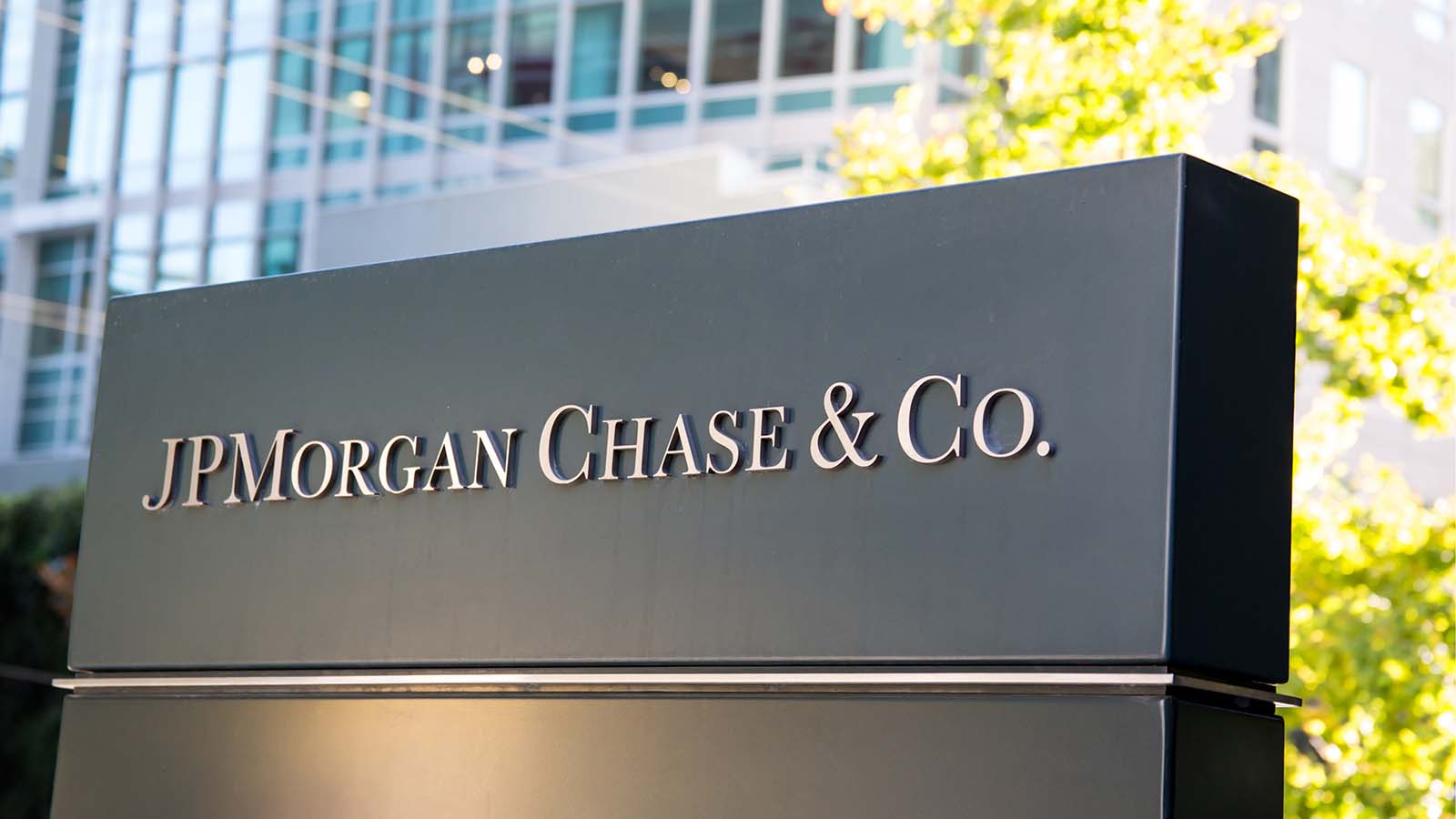As trading opens this morning, shares in JPMorgan Chase (NYSE:JPM) still cost 11% less than at the start of the year. At $122 each, that’s a market capitalization of about $370 billion. JPM stock has a modest price-to-earnings ratio of 15.7, and the 90 cents per share dividend still yields nearly 3%.

That means you buy it, right? Only if you you’re a very conservative investor. Banking is still a mug’s game. With money costing near zero. thanks to the Federal Reserve, there’s no margin in it.
What’s working at JPMorgan Chase is JPMorgan. Traders, merger advisors, and wealth management are keeping the rest afloat. Traders can expect a 20% jump in their bonuses. Merger advisors are being told not to take a long Christmas holiday. The bank is hiring wealth managers by the score, Mandarin preferred. Other salaries are being frozen.
Banking Business Bad
JPMorgan Chase managed to beat analyst estimates for its third quarter. Net income topped $9.4 billion, or $2.92 per share, but revenue was $29.9 billion, slightly down from a year earlier.
What made the difference was a smaller reserve set aside for loan losses. The bank had increased them dramatically earlier in the pandemic. They’re betting they won’t need the money.
Will they? Broad relief isn’t coming even as novel coronavirus infections skyrocket. A second stimulus check has been taken out of the $908 billion proposal now being discussed. Many consumers and small businesses will go bankrupt if help doesn’t come soon. Much of the small business aid under the previous CARES Act went unspent.
The virus represents a huge transfer of wealth from the middle class to the wealthy, and the election results mean that won’t be reversed. JPMorgan has made $1 billion this year just trading and storing gold for its clients. Stock and bond prices sit near record highs, despite a global recession.
Fighting Fintech
Even if banking, as a business, returns to normal, it won’t for big banks like Chase.
The reason is fintech.
JPMorgan Chase is looking for bargains in the space. It recently picked up a start-up that automates the creation of tax-efficient portfolios. It has created a new service to get money to merchants before settlements. There’s also new hardware to compete with PayPal (NASDAQ:PYPL) and Square (NYSE:SQ).
But banks have moved out of grand edifices filled with decision makers, onto street corners filled with helpless clerks. That may not be good enough for the 2020s.
ATMs have become obsolete, as people buy and sell with plastic. I went to a bank branch recently to pay for my safety deposit box. They wouldn’t take my money. I had to pay with my mobile app. I could have stayed home.
Many of JPMorgan’s fintech rivals are allied with shadow banks, vast pools of unregulated money that could disappear in a crunch. CEO Jamie Dimon warned before the pandemic this could leave borrowers bereft in a crisis. The warning went unheeded. Systemic risks are rising.
The Bottom Line on JPM Stock
The pandemic did not cause a financial crisis because the Federal Reserve did what father and son, J.P. Morgan and J.P. Morgan Jr., did in the 20th century. They backstopped the system.
That left their legacy, JPMorgan Chase, with little to do. When it should have been acting as a conduit between government money and hungry borrowers, it was sidelined by fintech and the shadow banking system.
Investment banking remains healthy, for now. But big banks no longer control the financial system, as they did as recently as 2008. That’s why JPMorgan Chase stock remains cheap. Buy it for the dividend, and as a hedge against a shadow banking crisis. Just don’t expect fat returns.
On the date of publication, Dana Blankenhorn did not have (either directly or indirectly) any positions in any of the securities mentioned in this article.
Dana Blankenhorn has been a financial and technology journalist since 1978. He is the author of the environmental thriller Bridget O’Flynn and the Bear, available at the Amazon Kindle store. Write him at [email protected] or follow him on Twitter at @danablankenhorn.
